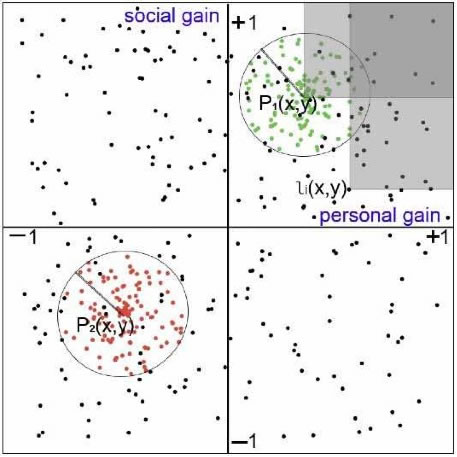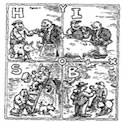Introduction: In ancient Greece, the cradle of democracy, governing bodies were largely selected by lot. The aim of this device was to avoid typical degenerations of any representative institution. In modern democracies, however, the standard is choosing representatives by vote through the Party system. Debate over efficiency of Parliament has therefore been centred on voting systems, on their impact on parliamentary performances and, ultimately, on the efficiency of economic system. In this paper, rediscovering the old Greek wisdom and recalling a famous diagram about human nature by C.M.Cipolla, we show how the injection of a measure of randomness improves the efficiency of a parliamentary institution. In particular, we develop an agent based model of a prototypical Parliament and find an analytical expression, whose predictions are confirmed by the simulations, that determines the exact number of randomly selected legislators, in an otherwise elected parliament, required to optimize its aggregate performance (number of approved acts times average social gain) after that free elections would have established the relative percentage of the two Parties or Coalitions. This result is also in line with the recent discovery that, under certain conditions, the adoption of random promotion strategies improves the efficiency of a human hierarchical organization.
........
Main References:
- C.M.Cipolla, "The Basic Laws of Human Stupidity", The Mad Millers (1976)
- J.W.Headlam, "Election by Lot at Athens", Cambridge University Press (1933)
- R.Michels, "Political Parties: A Sociological Study
of the Oligarchical Tendencies of Modern Democracies", Dover (1959)
- J.Buchanan, "The Limits of Liberty: Between Anarchy and Leviathan", University of Chicago Press (1975)
- O.Dowlen, G.Delannoi, "Sortition: Theory and Practice", Imprint Academic (2010)
- C.Boyle, "Lotteries for Education",
Imprint Academic (2010)
.... . ....








